As disgraced former prime minister Joseph Muscat pulls strings from the shadows of the Labour Party’s electoral campaign trail, questions remain about the fallout from corruption surrounding every major initiative of his administration.
From the controversial cash-for-passports program that would put Malta on the fast track to riches to a series of public-private partnerships that would transform the nation, led by Labour’s very own technocrat boy wonder Konrad Mizzi and his business wizard chief of staff Keith Schembri, Muscat took power on a wave of big promises, propelled by an electorate that had grown tired of the status quo.
Nine years later, his bubble has burst in a series of corruption scandals, court cases and the plummeting of Malta’s international reputation.
As Malta stood defiant in the face of criticism from the European Commission and the White House for its decision to cling to the golden passport scheme despite a growing wall of sanctions aimed at Russian oligarchs, The Shift decided to take a look at Joseph Muscat’s legacy of failure.
Citizenship for sale
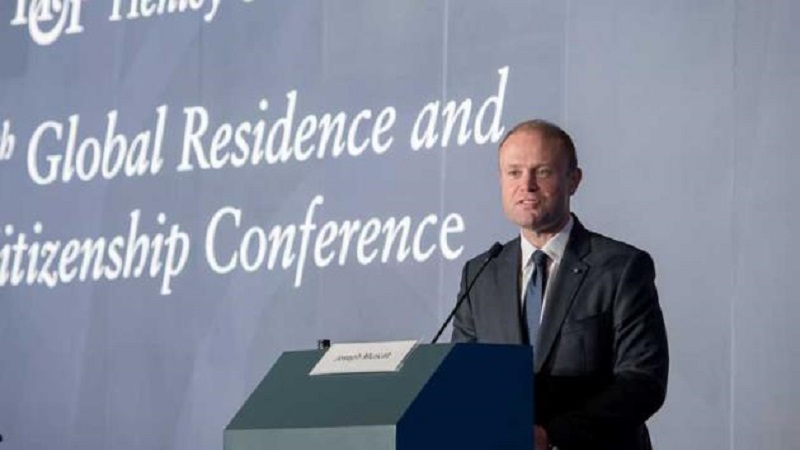
Joseph Muscat speaking at a Henley & Partners conference.
The golden passports scheme was already going full steam ahead by the end of 2013, opening the floodgates to hundreds of prospective buyers each year, but the Labour Party hadn’t mentioned its plans to sell Maltese passports during its electoral campaign. It came as a surprise to everyone.
The perception that the scheme would create a “genuine link” between these new citizens and the Maltese islands began falling apart by 2015, when reports exposed how passport buyers were allowed to get away with the bare minimum connection to Malta.
In April 2017, Muscat’s chief-of-staff was named in a leaked Financial Intelligence Analysis Unit (FIAU) report that outlined suspicions of a €100,000 kickback from passport sellers Nexia BT — cash which went straight into Schembri’s account at the now defunct Pilatus Bank.
The passport program continued to raise hackles in Europe, but frustration turned to disbelief when Muscat showed up in Dubai as guest speaker on behalf of Henley & Partners one week after journalist Daphne Caruana Galizia was assassinated by car bomb in October 2017.
By October 2020, the European Commission had initiated infringement proceedings against Malta to put an end to the scheme. The 2021 Passport Papers investigation confirmed the Commission’s worst fears, revealing just how much of a box-ticking exercise the IIP’s residency requirements always were.
Malta kept peddling passports anyway, doubling down even when the US and EU urged it to limit access to Russian buyers in response to the Russian invasion of Ukraine. Neither Prime Minister Robert Abela nor Parliamentary Secretary for Citizenship Alex Muscat was willing to put an end to Joseph Muscat’s disreputable cash cow until the screws of diplomacy were tightened to the breaking point.
In a dramatic reversal on 2 March, the government finally bowed to pressure and suspended the cash-for-passports scheme for Russian and Belarusian citizens. Unfortunately, the damage to Malta’s reputation had already been done.
The University that never was
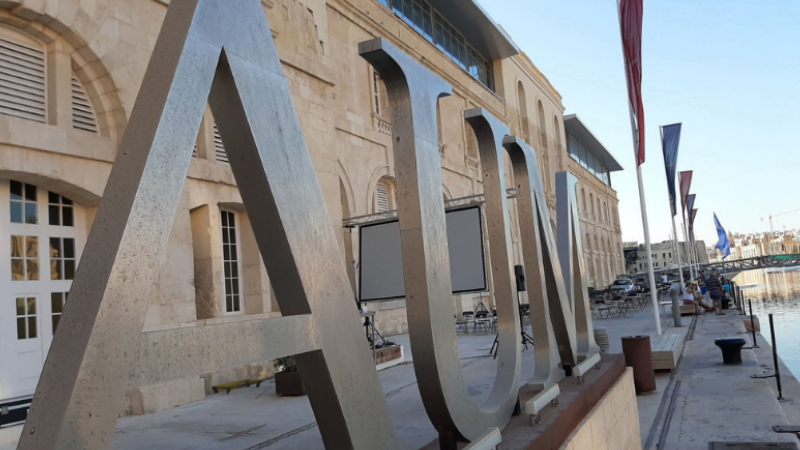
The American University of Malta campus in Cospicua.
Joseph Muscat said the American University of Malta (AUM) would turn the country into “an education hub in the Mediterranean” when he announced the project in 2015. But it wouldn’t just attract hundreds of foreign students. It was also “the key to an economic overhaul in the South of Malta”.
The prime minister wanted to give the Jordanian developers behind the project an 18,000 square metre tract of ODZ land at Żonqor point for a mega-campus that would include dorms, athletic facilities and restaurants, but public backlash forced the him to back off. The university was awarded land in Cospicua instead, where it stands largely empty today.
Two years after the glitzy launch, AUM had managed to attract 15 students out of a target of 300, leading to the dismissal of a third of its academic and administrative staff.
By 2021, AUM’s liabilities far outweighed its assets, and the cutting edge academic institute that would bring prosperity to the south and put Malta on the map of foreign students had posted €11 million in losses after just three years of operation.
In a fit of electoral grandstanding, Prime Minister Abela told Labour Party supporters that the government intends to ‘return’ the land earmarked for AUM at Żonqor point to the public, promising to give the school owners, the Jordanian Sadeen Group, a piece of land in Smart City in exchange.
He failed to acknowledge that the government is using public assets to rescue the failing investment a private company made in Joseph Muscat’s imaginary university.
A world-class hospital scam
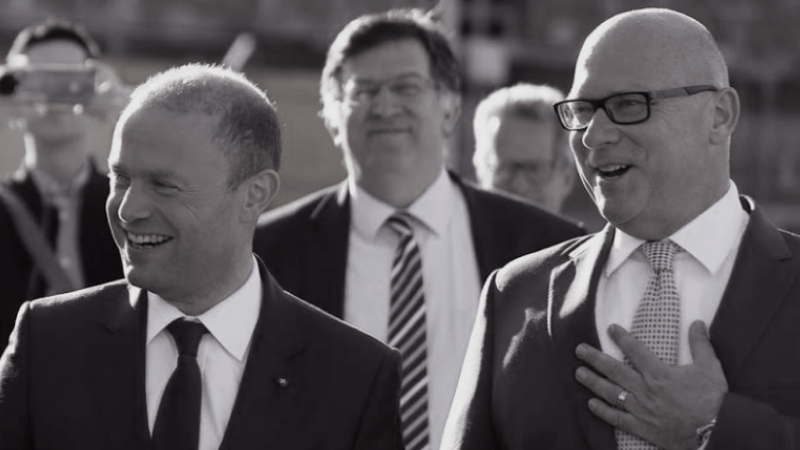
Former Prime Minister Joseph Muscat (left) with Armin Ernst from Steward Healthcare / VGH.
Muscat told taxpayers that the €4 billion contract for the concession and management of three public hospitals would “upgrade Malta and Gozo’s healthcare services to world-class levels”.
The contract was awarded to Vitals Global Healthcare (VGH), a group led by a mysterious Indian-Canadian called Ram Tumuluri who trailed a track record of fraud behind him. The conglomerate had no prior experience in the healthcare field, which led many to wonder how exactly they planned to run such a large project.
When VGH inevitably failed, a new US-based company called Steward Healthcare swept in and snapped up the concession for €1. The top brass knew a good deal when they saw one. After all, Steward’s CEO Armin Ernst had been with VGH from the beginning.
In the end, nothing was seen of the promised €200 million investment in Malta that was supposed to be made by VGH, and later Steward.
The NAO would eventually describe the “sinister” deal as predetermined, and one which repeatedly favoured the concessionaire over the taxpayer. The investors were soon fighting amongst themselves, and local and international litigation would be pursued between the concessionaires and the government.
Court documents filed abroad revealed that even the concessionaire who took over the contract from VGH knew it was “fraudulent” and “corrupt”. But the government of Muscat’s handpicked successor, Robert Abela, still allocated another €20 million to Steward in 2021, bringing the annual budgetary allocation to €70 million per year.
Alarming questions were also raised about payments made to Muscat soon after he left office, and which were alleged to be connected to Steward’s takeover.
By the end of 2022, taxpayers will have forked out a total of €300 million in bail-outs and annual payments for concessionaires who failed to deliver on basic aspects of their side of the contract.
And thanks to the inexplicable €100 million cancellation clause written into the agreement by Konrad Mizzi, the price of dumping Muscat’s financial albatross is almost as bad as the price of keeping it.
The Delimara ‘cancer factory’
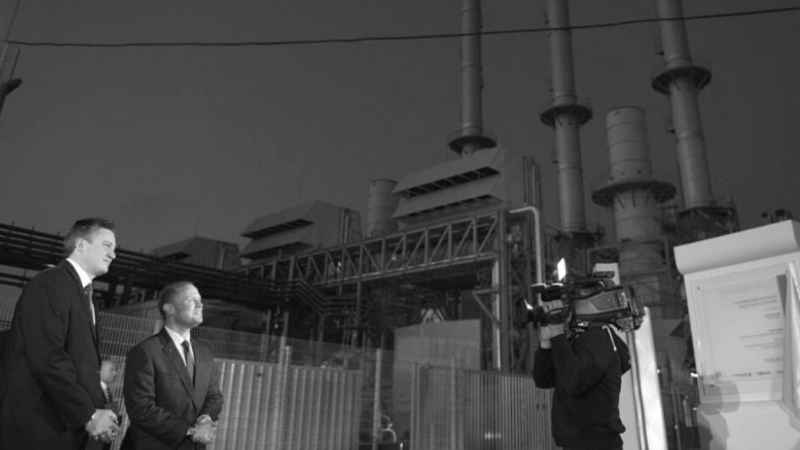
Konrad Mizzi and Joseph Muscat at the Electrogas power station inauguration.
The Labour Party’s biggest 2013 election promise had always been cloaked in smoke and mirrors. Joseph Muscat claimed he would give the people of Malta a new power station that was cleaner and that produced cheaper electricity than anything they’d ever dreamed of before.
The “cancer and asthma factory” at Delimara that burned heavy fuel oil would be gone, as would the old Marsa power station, which would be transformed into a recreation and commercial zone. LPG was the future, and we would eventually learn that Azerbaijan would supply it at costs well above market rates.
Muscat never explained how this could possibly be cheaper than power from the Sicily interconnector. His “cancer factory” line was nonsense, too. An air-quality study found no evidence that levels of particulate matter in Marsaxlokk and Birżebbugia were above EU safety limits. But the prime minister refused to retract his claim when confronted with questions in February 2014.
By then, it was too late to turn back. The €5 billion contract to take over and manage Malta’s power station had been awarded to the Electrogas consortium in September 2013, a few months after Muscat’s administration took power.
Every single aspect of the deal was compromised by collusion between high-ranking government officials and the consortium, which was largely spearheaded by Yorgen Fenech, the man accused of masterminding the murder of journalist Daphne Caruana Galizia.
An awful lot of water has lapped the shores of Marsaxlokk since the Electrogas scheme started falling apart, and investigations are ongoing.
The collusion surrounding the deal was highlighted in several hundreds of pages of reports compiled by the NAO, and has been recently brought back into the spotlight by the public accounts committee’s attempts to wring answers out of Konrad Mizzi, the minister whose signature authorised multiple questionable contracts.
The situation is a long way from resolution, but two things are clear: Electrogas drained millions of euros from Maltese taxpayers, and electricity didn’t get any cheaper or more reliable. In a just world, everyone involved in the project would be attempting to defend their actions in court.
The Labour Party would have its supporters believe that Joseph Muscat led Malta into a golden age of prosperity.
Two years after he was forced to resign in disgrace, all four of his major projects turned out to be scams.

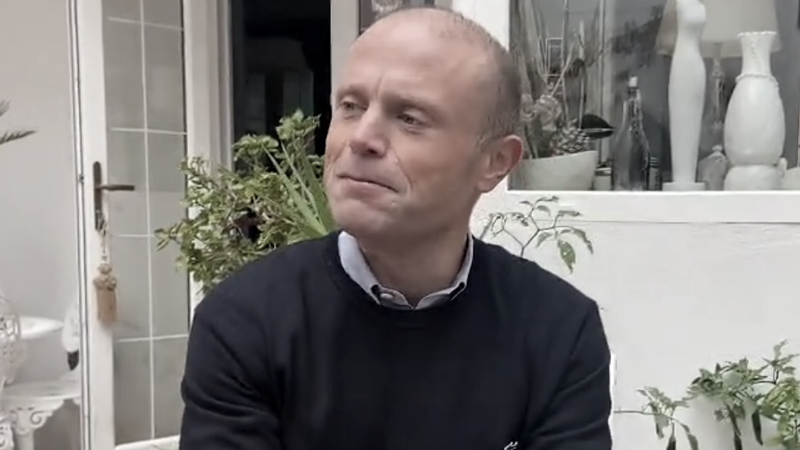












Shameful. Simply shameful that Dr Josef Muscat is still at large on the streets.
But as long as we have a would-be Police Commissioner Angelo Gafà, we have to rely on the help of, for example, the US, which is denying Mizzi and Schembri access.
What a shame for Malta.
Did Keystone Cops College train Angelo Gafa ?
Maybe.
Maybe Angelo Gafà has just made an unholy contract.
Just like his predecessor.
I see both of them on trial and in prison for their deeds and misdeeds.
That will certainly take a little time.
If not it must be Toyland ,that turned out that fine officer PC Plod. Pity Gafa doesn´t come close to him in rounding up the bad guys.
The phrase towards the end of this excellent article “In a just world” encapsulates everything which honest decent people expect their elected representatives to deliver in a member state of the E.U.
Unfortunately Malta’s reputation as far as the rest of the world is concerned is about as far away from being considered “ A just world” as it can get – Russia aside. The similarities are striking with a a kleptomaniac leader as in Malta who cares nothing for the man and woman in the street as long as the ego is massaged by the fawning followers and the wealth and trappings of corrupt dealings are ignored by the majority of their compatriots.
Putin is starting to learn that while you can fool your compatriots, despite the outrageous behaviour, a point is reached when the international community says “ enough is enough”.
Robert Abela and his cronies would do well to consider how the international community has turned on Russia because sooner or later Malta’s bluff will be called and Malta too will be facing similar economic sanctions as this is what eventually happens in “ A just world.”
Not to mention the omnishambles of the big data project that mysteriously disappeared leaving millions in debt! What’s happened about that?